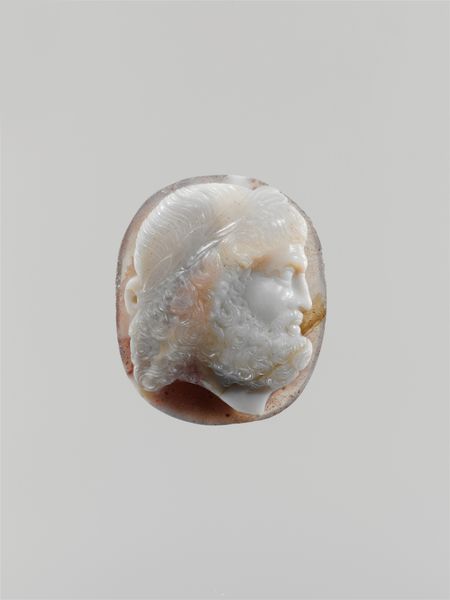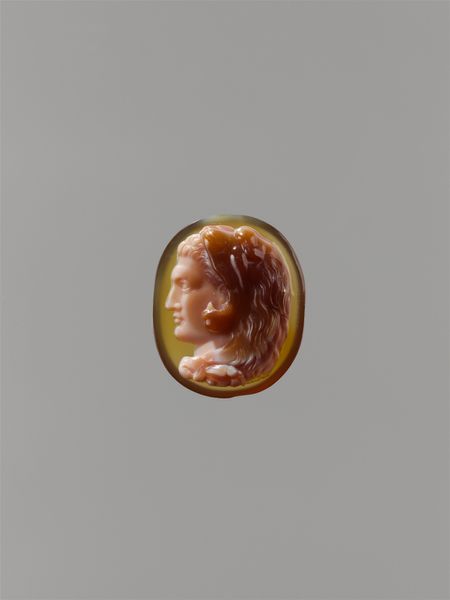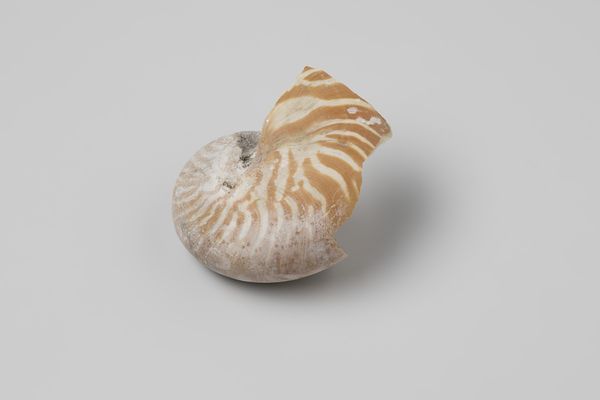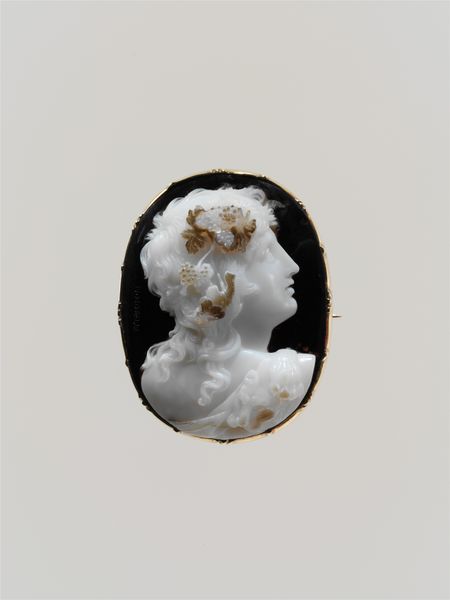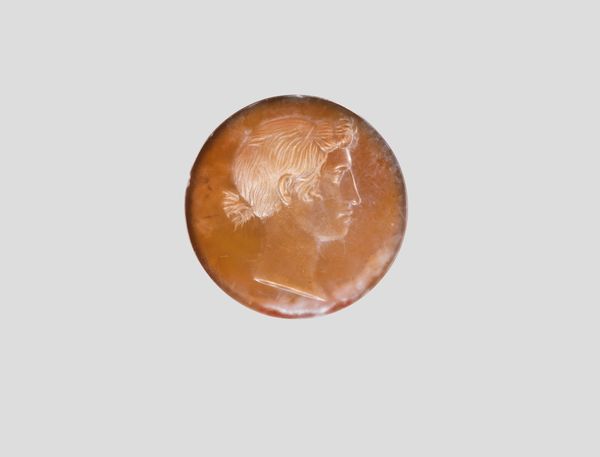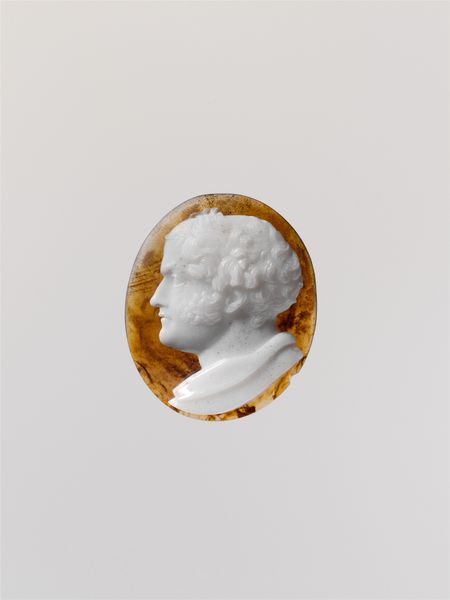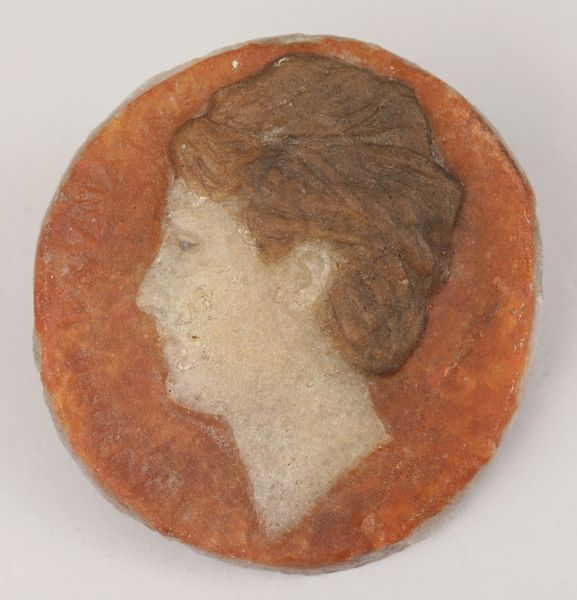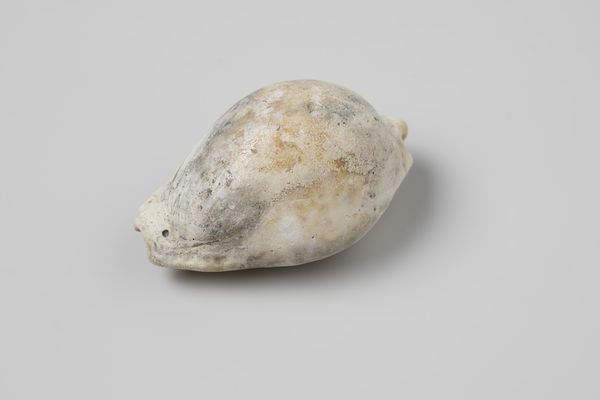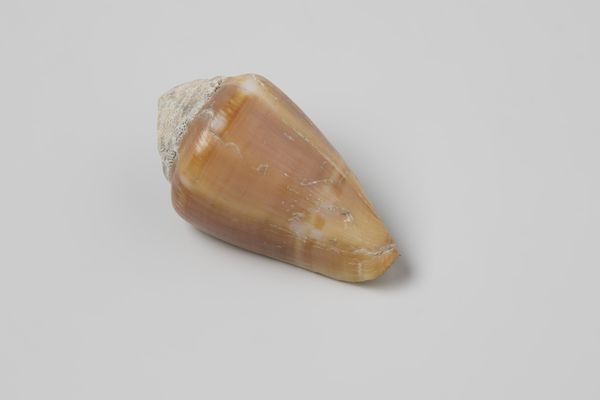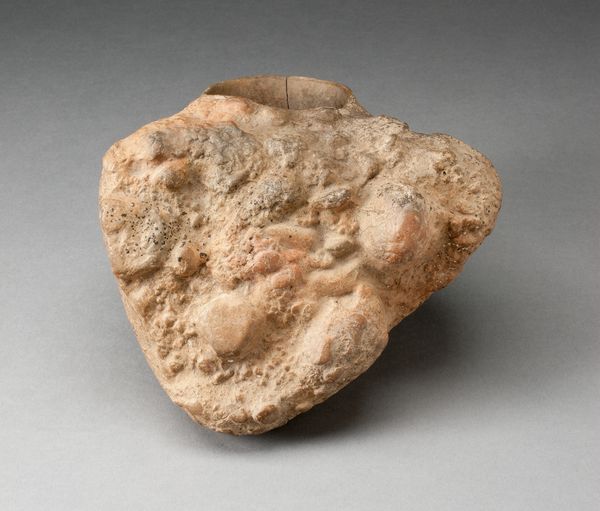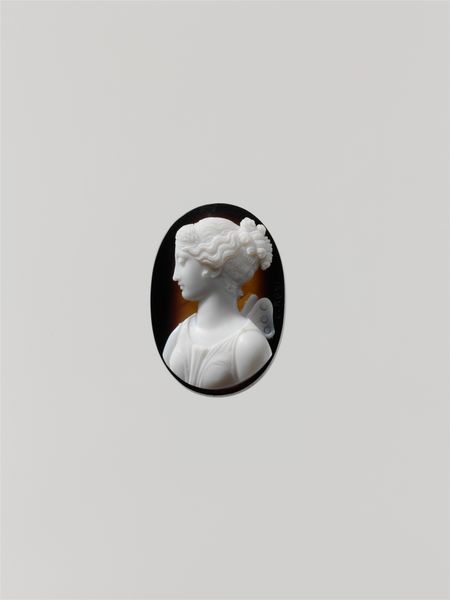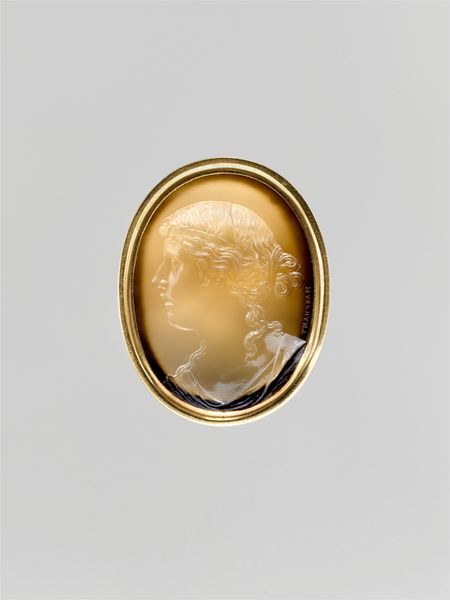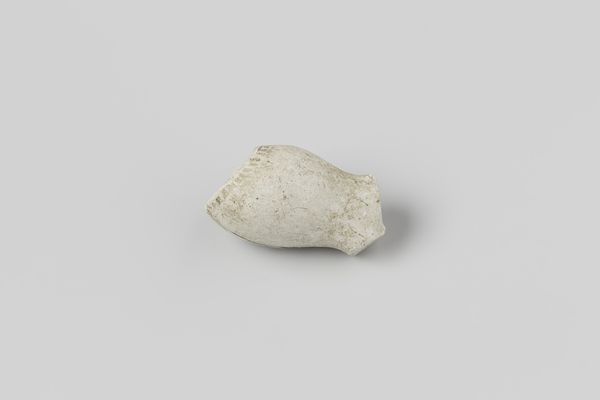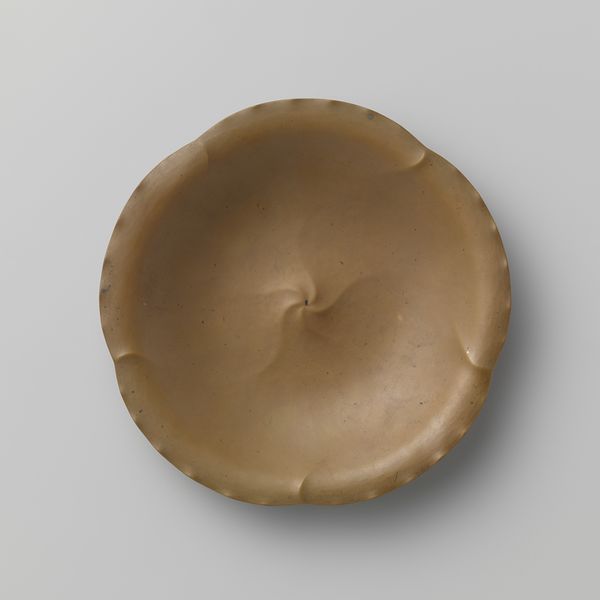
carving, relief, sculpture, marble
#
portrait
#
neoclacissism
#
carving
#
greek-and-roman-art
#
relief
#
classical-realism
#
sculpture
#
history-painting
#
decorative-art
#
marble
#
profile
Dimensions: Overall (confirmed): 2 1/16 x 1 11/16in. (5.2 x 4.3cm); 52.4 x 42.7 x 10.6 mm
Copyright: Public Domain
Maria Elisa Pistrucci created this agate cameo of the Head of Hercules sometime in the 19th century. Looking at this small artwork, it is interesting to consider it as an object made by a woman artist, working within a traditionally male-dominated field, during a period of significant social change. Pistrucci was from Italy, where the influence of the classical world shaped artistic production. During the 1800s, many artists looked to antiquity as a source of inspiration. Carved cameos like this one were collected as souvenirs or tokens of refinement, and the figure of Hercules, with his connotations of strength and heroism, was a popular subject. Hercules makes use of conventional visual codes to communicate certain cultural values, and is a token of the politics of imagery at the time. To understand this cameo better, we might look at exhibition records or collections catalogues to learn more about its original context. Art is contingent on the social and institutional context that shaped its creation.
Comments
No comments
Be the first to comment and join the conversation on the ultimate creative platform.
